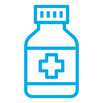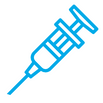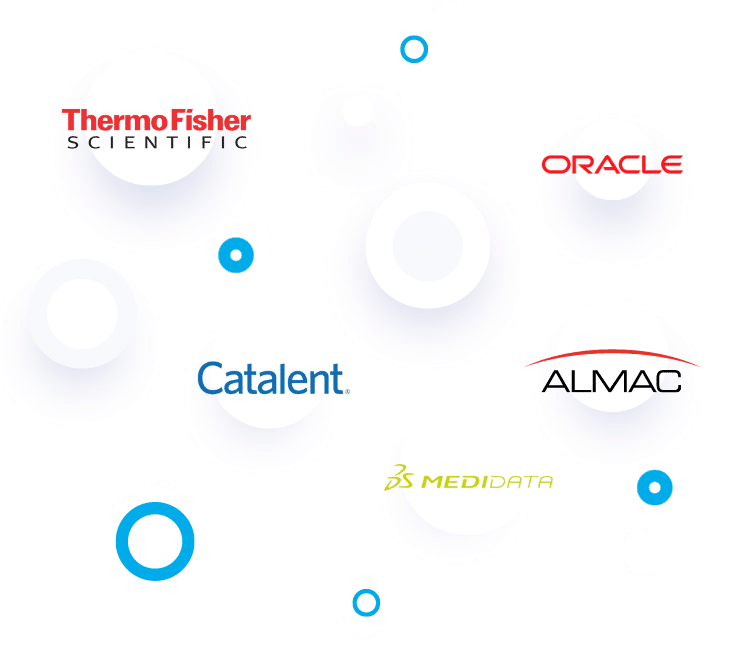ABOUT AARDEX GROUP
The Medication Event Monitoring
System Pioneers

AARDEX Group was initially established in 1984 in Fremont, California by Professor John Urquhart. Since then, AARDEX Group has been at the forefront of medication adherence technology, creating the first ever groundbreaking Medication Event Monitoring System, MEMS®. MEMS has been instrumental in accurately depicting, quantifying, and enhancing patient adherence behaviors in over 1,000 clinical trials its launch.


ADHERENCE IS POOR IN CLINICAL TRIALS
Preserving the Integrity of Clinical Trial Data
Medication adherence is a persistent problem in clinical trials that can compromise safety and efficacy calculations. Factors such as patient forgetfulness or intentional non-adherence, complex dosing schedules, and inadequate patient education and monitoring are some of the reasons for this issue. To combat this, AARDEX Group developed Medication Event Monitoring System (MEMS), a ground-breaking technology that harnesses the power of user-friendly medication adherence devices to gather medication adherence data passively.
Through MEMS AS®, our cloud-based medication adherence software, researchers can obtain real-time insights into the evolution of medication adherence across studies, sites, and participants. The software's intuitive dashboards also enable research teams to identify participants requiring coaching and support.
To further our commitment to solving this issue, we have developed an open ecosystem featuring packaging and devices from industry-leading vendors for medication adherence. Our ecosystem now comprises over thirty partners from various areas of the clinical trial continuum, including Decentralized Clinical Trial (DCT), Interactive Response Technology (IRT), Contract Manufacturing (CMOs), Clinical Research organizations (CROs), and Electronic Data Capture (EDC) providers. Through this ecosystem, we offer adherence solutions for all routes of administration, continually expanding to address this pervasive problem in clinical trials.

OUR CLIENTS
The Go-To Solution for Pharma Companies
Some of the world's leading pharmaceutical companies have embraced our Medication Event Monitoring System. From global giants to niche players, these organizations have recognized the value of our innovative solutions for enhancing medication adherence, reducing costs, and improving patient outcomes. It's an honor to partner with these remarkable brands, and we're proud to contribute to their efforts in advancing healthcare.

Medication Adherence Software →
Learn about our industry-leading adherence software for trials.

Medication Adherence Packaging →
Discover our range of medication adherence packaging.

Discover our range of medication adherence devices.
Got Questions?
Connect with an adherence expert.
Frequently Asked Questions
Medication adherence is a vital yet often overlooked aspect of successful research. That's why we've gone the extra mile to gather and organize the most frequently asked questions about this critical topic. Our goal is to empower researchers and patients alike with the knowledge they need to ensure medication adherence is never a hurdle to progress. So, without further ado, here are the answers you've been looking for!
MEMS – it may sound like just another acronym, but in the world of clinical trials, it’s so much more. MEMS stands for Medication Event Monitoring System, a revolutionary technology transforming how medication adherence is monitored in clinical trials. With AARDEX Group’s MEMS technology, researchers now have access to an open ecosystem of medication adherence packaging and devices that seamlessly integrate with the industry-leading medication adherence software, MEMS AS. This powerful combination allows for real-time, objective data on medication-taking behavior, providing researchers with the insights they need to optimize treatment plans and dosages. But it’s not just about data – it’s about making a real impact on people’s lives. By leveraging the power of MEMS, researchers can gain a deeper understanding of medication adherence, helping to ensure that patients are getting the treatment they need to live their best lives. And with AARDEX Group’s unwavering commitment to innovation, the future of medication adherence monitoring looks brighter than ever.
The use of MEMS (Medication Event Monitoring System) technology for medication adherence monitoring is strongly supported by compelling evidence. MEMS technology involves electronic monitors embedded in medication packaging that record the date and time a participant opens the container to take medication.
Numerous studies have demonstrated the accuracy and effectiveness of MEMS in monitoring medication adherence. For instance, a systematic review of 25 studies found that MEMS was highly accurate in detecting medication adherence, with a median adherence rate of 81% across all studies.
Another study revealed that the use of MEMS technology significantly improved medication adherence rates in patients with HIV, leading to better treatment outcomes.
In addition, a meta-analysis of 17 randomized controlled trials indicated that the use of electronic monitoring devices such as MEMS resulted in a significant improvement in medication adherence compared to standard care.
Overall, the evidence unequivocally supports the use of MEMS technology in medication adherence monitoring. With its high accuracy and effectiveness, MEMS has the potential to enhance patient outcomes and yield new insights in medical research.
Here are some of the key benefits of utilizing a digital medication event monitoring system in clinical trials:
Improved accuracy: Compared to traditional methods such as self-reporting or pill counting, digital medication adherence solutions offer higher accuracy. These solutions can track medication adherence in real-time, providing precise and reliable data that can inform safety and efficacy calculations.
Increased efficiency: Digital medication adherence solutions can automate the monitoring process, saving time and resources for both participants and researchers. This can lead to more efficient clinical trials, ultimately accelerating the development of new treatments.
Better participant engagement: Digital medication adherence solutions can engage participants in their medication regimen by providing them with real-time feedback and coaching. This can help improve medication adherence rates, leading to better participant outcomes.
Enhanced data collection: Digital medication adherence solutions can collect a wealth of data on medication adherence patterns, offering valuable insights for future research. Researchers can identify trends and patterns in medication adherence, leading to better-informed decisions in the development of new treatments.
Increased flexibility: Digital medication adherence solutions can be utilized across a range of medication types and delivery methods, providing a scalable and flexible solution for clinical trials. This ensures that medication adherence is effectively measured and improved during clinical trials, ultimately leading to better outcomes for participants.
Poor medication adherence can significantly impact safety and efficacy calculations in clinical trials. Inaccurate safety and efficacy calculations can lead to inconclusive or misleading results, which can have severe consequences for patients.
When participants in a clinical trial do not adhere to their medication regimen as prescribed, it can affect the accuracy and reliability of the data collected. Non-adherence can lead to under-dosing or over-dosing, affecting the safety and efficacy of the medication being tested.
In terms of safety calculations, non-adherence can make it challenging to detect adverse events that may be related to the medication being tested. This can result in safety issues being overlooked or underestimated, which can harm patients.
In terms of efficacy calculations, non-adherence can make it challenging to accurately assess the effectiveness of the medication being tested. When participants do not take their medication as prescribed, the dosage levels may not be sufficient to achieve the desired therapeutic effect. This can lead to inaccurate efficacy calculations, undermining the validity of the trial results.
WEBINAR WITH MERCK & BIOGEN
Mitigating the Risk of Poor Adherence in Trials
Watch this live recording with adherence experts from Merck & Biogen to learn about their approach to mitigating the risk of poor adherence in trials.


Collaborating for Safer, More Efficient Trials.
By combining technology and partnerships, we are revolutionizing how medication adherence is monitored in clinical trials. Our unique adherence ecosystem brings together leading medication adherence packaging and devices and DCT, IRT, and EDC vendors, CROs, and CMOs to drive innovation.
